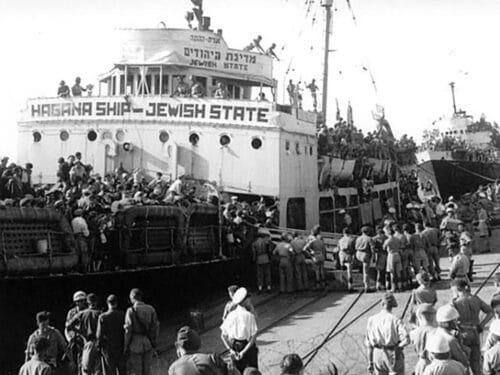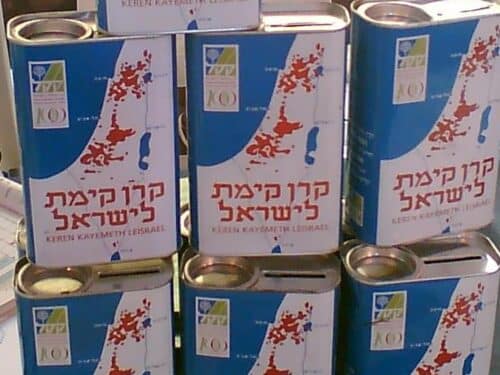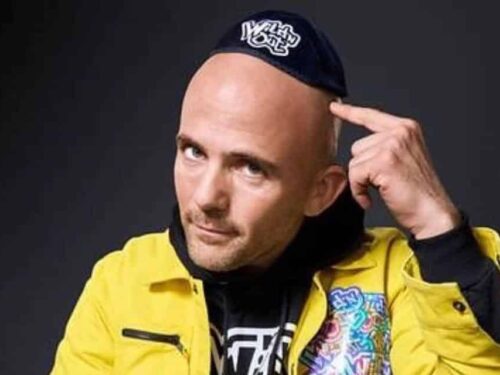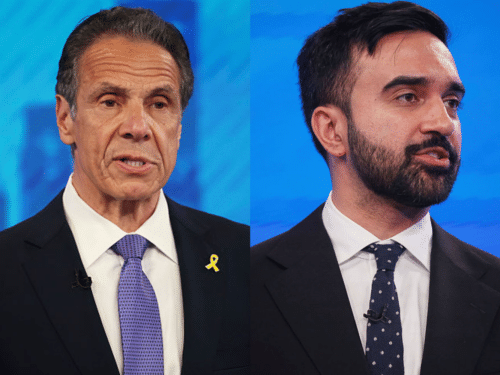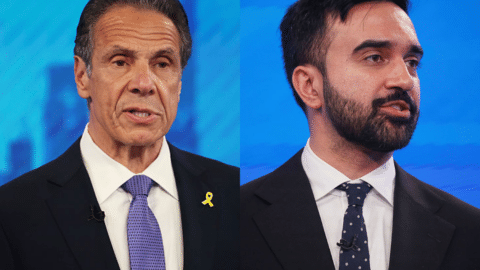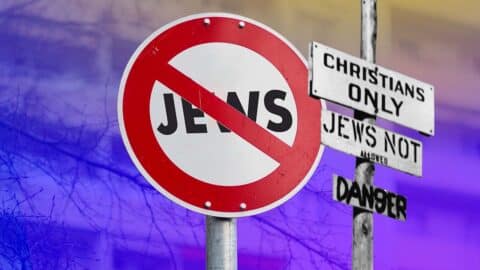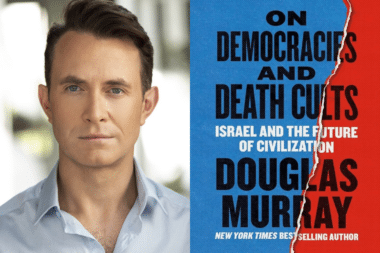
Israel’s Yuval Raphael secured second place at the Eurovision Song Contest on Saturday night, winning the highest number of points from the public votes.
The contest has two sections of votes, which are added together: one from each participating country’s judges panel and one from the public. While Israel was awarded only 60 points from the judges, it received 297 points from the public vote, more than any country in the competition.
In the judges’ vote section, each participating country can award a special prize of 12 points (commonly referred to with the French term “douze points”) to one competitor of its choosing. Regional and international politics often affect that decision.
Israel only received “douze points” from one country this year: Azerbaijan. Israel’s 12 points were awarded to Greece’s entry.
From the public vote, however, Israel received 12 points from 12 countries and the points awarded by those living in non-participant countries. These countries included places usually seen as anti-Israel, like Spain. Ireland, which also has frosty relations with Israel, awarded seven points in the jury vote and 10 votes in the public vote to the Jewish state.
Adding to the dramatic tension of the night, as Israel was still in first place and the audience was waiting for Austria’s result to see which would win, millions of Israelis received the early alert that a Houthi missile had been launched and sirens would be sounding soon. Just seconds after the final results were announced, sirens blared and millions of Israelis entered shelters.
Yuval Raphael stood strong in the face of hate
Raphael, a survivor of the Nova Music Festival massacre, represented Israel in the contest with the song “New Day Will Rise.”
The song — which has lyrics in Hebrew, English, and French — focuses on surviving through dark times and how love is stronger than hate. “New Day Will Rise” includes a verse from the Song of Songs: “Many waters cannot quench love, nor rivers drown it.”
As Raphael took part in the opening events of the contest, anti-Israel activists protested against her. One protester was seen drawing his finger across his neck in a threat against the singer.
During Raphael’s performance at the finals, at least two anti-Israel protesters attempted to rush the stage. One sprayed security guards with paint. Outside the venue, anti-Israel protesters fought with police officers. Despite the tension, Raphael ended her performance strongly with the words “Am Yisrael Chai” (meaning “the people of Israel live on”).
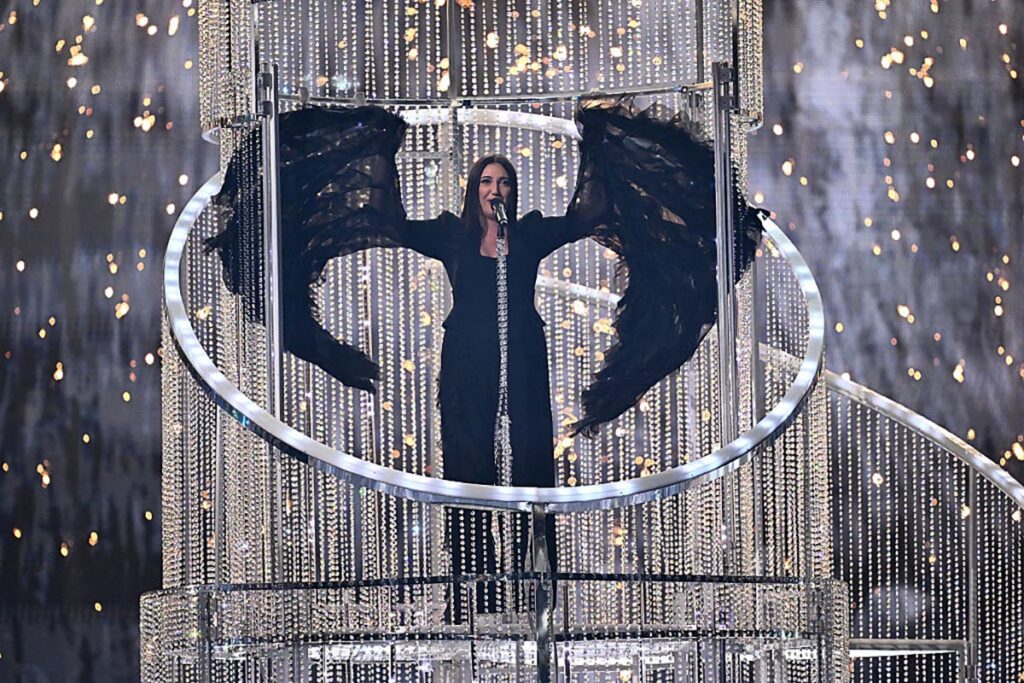
These protests come after years of calls for Eurovision to disqualify Israel as a participant. Many critics of the Jewish state claim the war in Gaza should prevent participation, like the invasion of Ukraine caused the European Broadcasting Union to exclude Russia.
Israel’s success causes major upset
Israel’s success in the contest came as a shock to many. On the betting tables, Israel’s odds to win had gone down since the beginning of the contest, falling from fourth to seventh place.
Anti-Israel sentiments were also high around the contest, with several former contestants and many fans calling for Israel to be banned from the event.
This made the fact that Israel won the highest number of votes from the public even more notable for some, especially since many of the highest votes came from countries whose leaders have repeatedly condemned Israel.
For many, this was seen as a sign that there is a “silent majority” that supports Israel in Europe, despite a vocal anti-Israel camp. Others accused Israel of “buying votes” through an extensive ad campaign that encouraged social media users to support Israel in the contest.
Yoav Tzafir, the director of Israel’s Eurovision performance, stressed after the contest that “If the judges had given us just 50 more points — Israel would have won Eurovision.”
“It’s no secret — our supporters are ordinary people, the general public. Those against us represent the elite. That’s the fundamental difference. But I feel like we won. This is a victory for all of us. It turns out you don’t need the judges to achieve great success,” Tzafir said.
Culture journalist Hannah Brown argued that Israel was successful in the popular vote because “while the elite staff of the public broadcasters may despise Israel, audiences around the world either enjoyed the song, were touched by Raphael’s story of survival, or both.”
Brown noted the stark disparity between the jury vote, which gave Israel only 60 points, and the popular vote, which gave Israel nearly five times as many.
“This is an important fact to keep in mind. While certain sectors of the population of European countries may despise Israel, hundreds of millions of voters put their money where their votes were — and chose Israel,” said Brown.
Israeli journalist Yaara Shapira argued, however, that the results don’t necessarily show that a majority of Europeans love Israel.
“Voting in Eurovision, like in political elections, is done solely on positive, not negative, sentiment, and unlike elections, the only question asked is who is the largest party, not who can form a coalition of people who think they are a legitimate candidate,” Shapira said.
For example, she noted that the fact that a country gave 12 points to Israel doesn’t mean the majority of its citizens liked the song, but rather that no other song received more votes than Israel.
Shapira posited that Israel’s high number of votes came from the fact that it’s “perceived by right-wing voters in Europe as it is perceived in the Arab world — as a frontline outpost of the West fighting Islam.”
Israel opponents outraged at Raphael’s success
While Israelis and supporters were celebrating Raphael’s success, some world leaders and social media users were left fuming.
Spain’s public broadcaster even said it would appeal to the European Broadcasting Union, which runs the competition, to review the contest’s voting system.
Eurovision’s director, Martin Green, rejected the complaints, saying “The televoting system currently used in Eurovision is considered the most advanced in the world today, combining advanced verification processes, data security mechanisms and analytical review of voting patterns. There is no suspicion of bias or irregularities in the awarding of points – not even in relation to the full score given to Israel by Spanish viewers.”
Israel’s Eurovision history
Israel has performed in the Eurovision Song Contest since 1973 and has been successful in many of the competitions. Israel has even won the contest four times and holds the record for the most participation and wins without ever coming last.
While Israel isn’t in Europe, it is part of the European Broadcasting Union, meaning it can compete in the contest. Other non-European countries, including Armenia, Morocco, Azerbaijan, and Australia, are competitors too.
